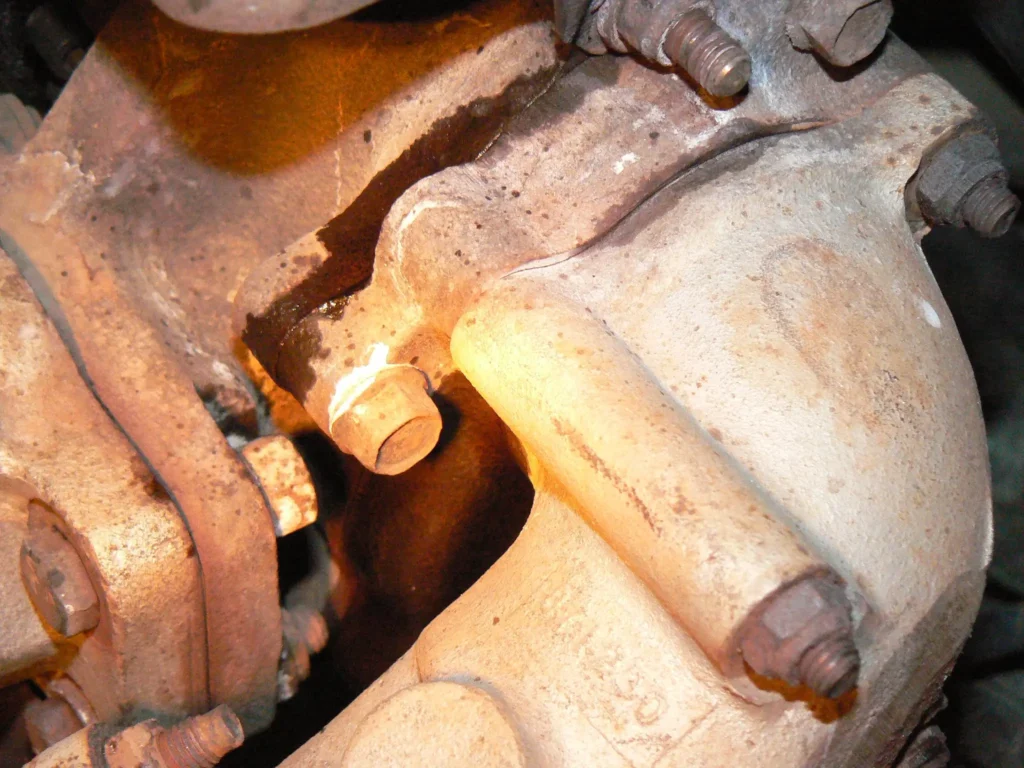If you’ve noticed your vehicle’s fuel economy declining lately, one of the easiest things you can do to give it a boost is to change the engine oil. While it may seem trivial, keeping your oil fresh is vital for optimal engine performance and efficiency.
In this comprehensive guide, we’ll cover everything you need to know about Can Oil Change Improve Gas Mileage? including:
- The importance of motor oil and how it impacts MPG
- Studies on the gas mileage benefits of an oil change
- Reasons fresh oil improves fuel efficiency
- Other factors that reduce MPG
- Actionable tips to start improving your vehicle’s MPG
- FAQs on oil changes and gas mileage
By the end, you’ll understand exactly why an oil change is one of the best things you can do to keep your ride running smoothly and efficiently for better gas mileage. Time to change your oil and hit the road!
Why Motor Oil Matters for Gas Mileage
Can Oil Change Improve Gas Mileage? To understand how oil changes can improve gas mileage, it helps to first know what motor oil does in your engine.

Engine oil has three core functions:
- Lubrication – Oil coats all the moving metal parts in your engine to prevent friction and overheating. This allows the engine to run smoothly rather than having metal grind on metal.
- Cleaning – Oil flows through tiny passages to remove contaminants and deposits. It also contains detergents to suspend particles so they can be filtered out. This prevents sludge buildup.
- Cooling – In addition to the cooling system, oil helps draw heat away from critical components like bearings, cylinders, and valves.
When oil is fresh, it can properly execute these jobs. But over time, it breaks down and becomes thicker and dirty. This leads to reduced lubrication, cooling capacity, and cleaning ability.
And that directly impacts your gas mileage. Keep reading to better understand why.
Studies Confirm an Oil Change Improves MPG
Don’t just take our word for it. Independent studies have shown the measurable fuel economy benefits you can gain from a simple oil change.
For example, a study by the American Chemical Society found that motor oils that were used for prolonged periods in taxi fleets showed up to a 4% decrease in fuel economy compared to fresh oil.
Researchers also tested this in the lab. They ran engines continuously on a dynamometer to simulate in-service conditions. The engines using new oil showed 2-5% better fuel efficiency than those using older oil.
Another study in South Africa analyzed the impact of oil changes on cars used as taxis and mini-bus services. They observed a 3-5% improvement in fuel consumption after an oil change.
The findings were consistent: fresh oil equals better MPG. Now let’s look at why that is.
4 Reasons Why New Oil Improves Gas Mileage
There are four main ways that new, clean motor oil helps maximize your car’s fuel efficiency:
1. Reduced Engine Friction
As oil ages and shears down, its lubricating properties degrade. This increases friction between moving engine components like bearings, pistons, camshafts, and valve trains.
The engine has to work harder to overcome this friction, using more fuel in the process. Fresh oil immediately reduces friction to help your engine – and gas mileage – run better.
2. Enhanced Cooling Capabilities
Motor oil helps draw heat away from critical engine components. But as oil breaks down over time, its ability to effectively disperse heat declines.
This causes engine temperatures to rise. In response, your engine computer may actuate measures to prevent overheating, like enriching the fuel mixture. All of this diminishes MPG. An oil change restores the oil’s cooling capacity to enhance efficiency.
3. Improved Engine Cleanliness
Can Oil Change Improve Gas Mileage? As contaminants build up in old oil, they can clog narrow oil passages and coat vital components. This makes it harder for oil to properly lubricate and cool the engine.
Detergents in fresh oil also help suspend and remove sludge and deposits, keeping critical parts cleaner. This further reduces friction and heat for better MPG.
4. Preventing Premature Engine Wear
When oil loses its protective lubricating layer, it leads to accelerated engine wear. As more metal parts grind and scrape rather than slide smoothly, your engine works harder and uses more fuel to compensate.
By preventing this excessive wear, a fresh oil change ensures your engine runs as efficiently as possible, without having to overexert itself.
As you can see, the benefits of new oil all translate directly to improved fuel economy. But oil isn’t the only factor impacting your MPG…
What Else Reduces Gas Mileage?
While fresh oil is critical, several other aspects of car maintenance also affect your vehicle’s fuel efficiency. Be sure to keep up with:
Air Filter Changes – A clogged air filter makes your engine work harder to suck in air. Replacing it can improve MPG by up to 10%.
Fuel Filter Replacement – Old fuel filters allow contaminants to enter the fuel system. New ones optimize fuel flow.
Tune-Ups – Worn spark plugs, bad oxygen sensors, and faulty fuel injectors reduce combustion efficiency.
Tire Pressure – Under-inflated tires create more rolling resistance. Check pressures monthly.
Wheel Alignment – Improper alignment increases drag. Have this inspected when you notice uneven tire wear?
Weight Reduction – Extra weight stresses the engine. Remove unnecessary cargo.
Accelerating & Braking – Aggressive starts and panic stops wasting fuel. Drive smoothly.
Speed Control – Exceeding 60 mph increases aerodynamic drag. Use cruise control on highways.
Can Oil Change Improve Gas Mileage?Can Oil Change Improve Gas Mileage?By combining fresh oil with these other good maintenance practices, you can maximize your car’s MPG and keep more cash in your wallet.

10 Tips to Start Improving Your Gas Mileage
Here are 10 easy and effective tips you can start applying right away to save fuel:
- Change Your Oil – This is the #1 thing you can do to give your MPG an instant boost. Follow the manufacturer’s recommended intervals.
- Keep Tires Inflated – Under-inflation reduces fuel economy. Check pressures monthly, including the spare. Invest in a portable inflator.
- Use Recommended Grade Fuel – Putting in lower octane fuel than your owner’s manual calls for reduced performance and economy.
- Change Air Filter – A clean filter allows optimal airflow to the engine for complete combustion. Change it annually or every 20,000 miles.
- Drive Smoothly – Avoid jackrabbit starts and hard braking. Gradual acceleration and braking improve MPG by up to 33%.
- Reduce Drag – Roof racks, open windows, and storage pods create extra drag. Remove when not needed to improve aerodynamics.
- Plan Combinable Trips – Link errands into one excursion to avoid making multiple cold starts. Less idling saves gas.
- Limit Idling – Idling gets 0 MPG. Shut off your engine if waiting more than 60 seconds, except in traffic.
- Lighten the Load – Extra cargo weight stresses the engine, reducing economy. Remove unnecessary items from your vehicle.
- Maintain Speed – Frequent speed fluctuations waste fuel. Use cruise control to help maintain a steady pace on highways.
Sticking to these simple habits will keep your engine running at peak efficiency for maximum MPG performance.
FAQs on Can Oil Change Improve Gas Mileage?
Still, have some lingering questions about Can Oil Change Improve Gas Mileage?? These frequently asked questions have you covered:
Does oil affect fuel consumption?
Yes, engine oil has a direct impact on fuel efficiency. As oil degrades, it reduces lubrication and cooling. This makes the engine work harder, using more fuel. Keeping oil fresh with regular changes maintains optimal MPG.
What oil improves gas mileage?
Fully synthetic oils like 0W-20 or 5W-30 offer the best mileage improvement. Their superior viscosity at low and high temperatures reduces friction, helping MPG. Always use the oil weight recommended by your manufacturer.
Do cars run better after an oil change?
Absolutely. Fresh oil renews the lubricating film between engine parts and cleans away contaminants. This allows the engine to run smoother and more efficiently, with less effort. You’ll notice improvements in acceleration and MPG.
Does low oil affect gas mileage?
Yes. When oil gets too low, it can’t properly lubricate and cool the engine. This accelerates wear and forces the engine to work harder, using more fuel. Always maintain proper oil levels between changes.
Does thicker oil affect gas mileage?
Thicker oils like 10W-30 inherently create more friction than thinner grades like 5W-20, which reduces fuel economy. Only use the viscosity stated in your owner’s manual for optimal MPG.
What reduces gas mileage?
Factors like under-inflated tires, dirty air filters, old spark plugs, aggressive driving, extra cargo weight, roof racks, open windows, and exceeding 60 mph all reduce MPG. Keeping up with car maintenance and smart driving habits maximizes it.
Following the manufacturer’s oil change schedule and using the recommended weight oil will keep your engine running clean and strong for the best possible fuel efficiency.
The Bottom Line on Can Oil Change Improve Gas Mileage?
The bottom line is that regularly changing your engine oil is one of the simplest ways to maximize your car’s gas mileage.
Fresh oil reduces friction, enhances cooling, cleans deposits, and prevents excessive wear – all of which translate directly into improved fuel economy.
While oil is important, also be diligent about following the maintenance schedule outlined in your owner’s manual. Replace air and fuel filters, spark plugs, and oxygen sensors when needed.
Plus, adopt smart driving habits like smooth acceleration and braking, proper tire inflation, weight reduction, and speed control.
Can Oil Change Improve Gas Mileage? Applying all these gas mileage best practices will keep your engine performing at its peak. That means you’ll spend less on fuel over time while avoiding costly repairs down the road.
Changing your vehicle’s oil every 5,000 – 7,500 miles provides tremendous benefits. But be sure to follow the guidelines in your owner’s manual, as some new vehicles can go even longer between oil changes with full synthetic oils.
Investing a little money and time upfront into proper maintenance pays big dividends through improved MPG and engine longevity. So what are you waiting for? An oil change is the perfect first step toward maximizing your car’s performance and fuel efficiency.

